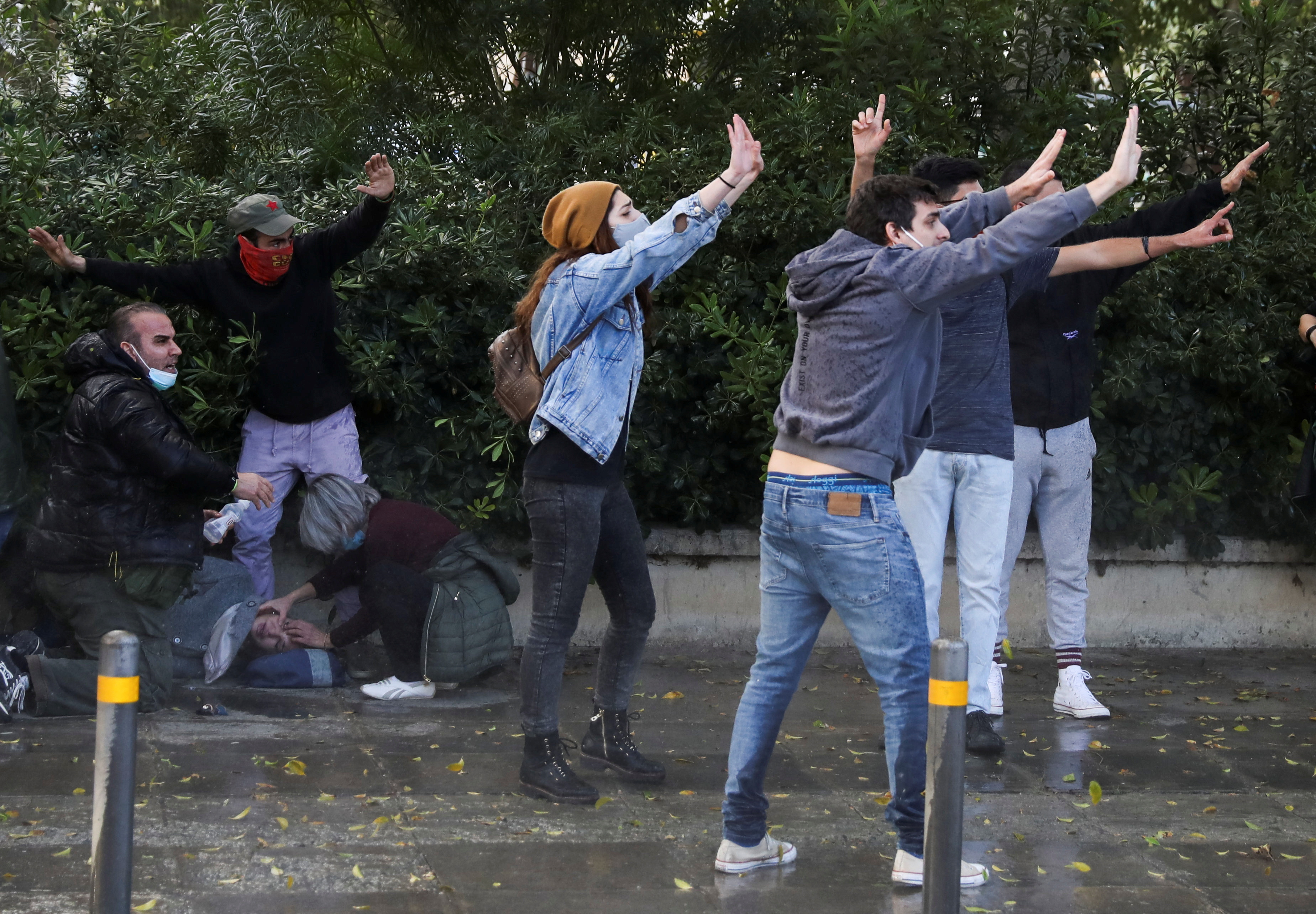The law authorising the council of ministers to issue decrees for the protection of public health is outdated and must be reconsidered, including demonstrations, lawyer Andreas Angelides said on Thursday.
His comments came as the head of the government’s scientific coronavirus advisory team was quoted by daily Politis as saying that protests carry no more risk of Covid-19 transmission than other places – provided that protective measures are adhered to.
Constantinos Tsioutis, assistant professor of pathology specialising in infection control at the European University, said the team had been asked by the government on the issue and replied that protests are not considered more dangerous than other places where people can gather, provided people abide by protective measures.
He was referring to the political firestorm following Saturday’s demonstration against corruption and the pandemic measures in which police are accused of using excessive force. The demonstration and the negative reaction since have partly centred on whether it is constitutionally sound for demonstrations to be banned, citing public health.
The matter must be decided by the courts, Angelides told the Cyprus News Agency, while noting that the constitution does indeed grant the council of ministers the power to issue decrees.
“These decrees must always be examined on the basis of the constitutional principle but also the principle of proportionality,” he said.
“That is, when you restrict some individual rights, the requirement of the common good must be so great that it balances the deprivation of those rights with the corresponding right not to be deprived of any such right,” he added.
What that crudely boils down to is that some crucial freedoms may be curtailed if the threat to the public good is itself under immense threat.
“I have the impression that at some point all these decrees must be examined as to whether they could have some form of improvement, in terms of safeguarding individual rights that are impacted by the decrees, in relation to whether they must be to such a strict degree or to a more limited extent,” he said.
Meanwhile, the police met on Thursday afternoon to discuss how they will monitor a second demonstration planned for this Saturday. No details of what was discussed were released other than the fact that the police would be present.
“All the information, which is currently available, has been presented so that we can draw up a plan of action. The police are ready and will be located at the scene to police the demonstration,” police spokesman Christos Andreou said.
Akel leader Andros Kyprianou, meanwhile, met President Nicos Anastasiades on Thursday amidst the fallout from Saturday’s demonstration in Nicosia.
Following public outcry citing excessive force by riot-squad officers, opposition parties called on Justice Minister Emily Yiolitis to resign, while it remains unclear who gave the orders to police.
For their part, Thyra 9 – the former organised fan club that supported Omonia – has said that they will attend Saturday’s demonstration but expressed their “disgust” with Akel.
“We are not interested in and are disgusted by the sudden love of various political parties for the protest,” their announcement read.
They singled out Akel specifically for initially speaking out against demonstrations and only later supporting it following massive public support – Thyra 9 said.
Andreou said that police have been informed of such plans and will also be present should anything occur.
Some critics of the demonstration have focused on the strong presence of left-wing groups amongst the organisers which may come at the exclusion of others across the political spectrum.







Click here to change your cookie preferences